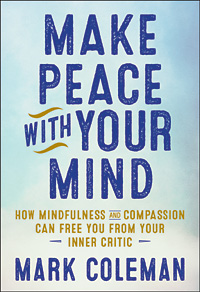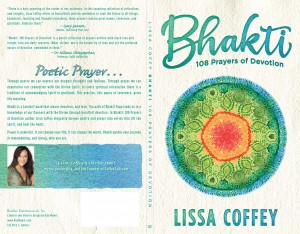Worrying – The Truth About It
Unless you are a Zen monk who has mastered the art of total thought control, you would be inclined to worry at times.
According to the Merriam Webster dictionary, worry is defined as:
“To think about problems or fears: to feel or show fear and concern because you think that something bad has happened or could happen.”
Here’s something that we all would know – some people worry more than others.
I had a Life Coaching client whose sense of feeling “normal” was when he had something to worry about.
If things were going well for him, he would subconsciously look for things to worry about. Once he found something to worry about, he would feel like he was back in his “zone”.
This former client of mine reminds me of a quote by Tony Robbins:
“We’re not wired for happiness; we are wired for anxiety. We are wired for what’s wrong. We are wired for survival, which means our brain is constantly looking for anything that could hurt us. This serves us well when we’re crossing a busy intersection, but it does not serve us if we permanently live in that emotional state, always fearing what danger might lurk around the corner. The good news is you get to choose which emotions you want to experience the most.”
While most of us (especially in Western Society) have worried about things in the past, and will worry about things in the future, there are certain things that you can control when it comes to worrying.
Here is a 5 step process to handle worrying in a productive manner:
- Acknowledge it – if you are worrying about something, then please acknowledge the fact that you are worried. Just like everything else on earth, “Don’t worry, be happy” is easier said than done. Acknowledging it is the first step. Living in denial or trying to fight it off will be of little or no use. Pretending that you are not worried will not help either. Acknowledging the fact that you are worried will put you in a far better position (mentally, emotionally, and physically) to handle the cause of the worry.
- Be solution oriented – instead of worrying about the problem, shift your attention to the solution. Focus on the solution, not the problem. Yes, sometimes you have to focus on the problem in order to come up with a solution. That said, the solution is more important than the problem. When you focus on the solution, you will be more likely to feel that you are in control. With more control of the situation comes less worry. If the situation is totally out of your control, then acceptance will be the most productive way to handle it. In an article in Psychology Today, Professor Graham C.L. Davey said “There is good evidence that in most people worrying is associated with a problem-focused coping style (that is, a willingness to approach and deal with problems), and it’s also associated with an information seeking coping style.” You can use worrying as something that will prompt you to take action toward a solution. Make a plan of action steps that you will take in order to overcome the problem. Then execute!
- Switch off from the media – the Black Eyed Peas said “Wrong information always shown by the media. Negative images is the main criteria.” Regardless of how positive or optimistic you are, your mindset will become what you feed it. If you are constantly bombarding your mindset with negativity from the media, guess what? You will most likely start to feel negative. In 2007, a friend of mine who was also a very devout student of personal development gave me an exercise. He said “Watch the 6:00 pm news for a week, and have a look at the top 5 stories in the news each day. I will bet my bottom dollar that they will all be something negative – people getting killed, someone getting robbed, a war, terrorism, or animal cruelty”. After a week of watching the nightly news, I only had one thing to say to him – “You were spot on!” Now, I am not suggesting that you completely cut yourself off from what’s happening in the world. All that I am suggesting is that you guard your mind from being bombarded by negativity. Constant exposure to negativity will not help you overcome being worried.
- Give yourself a reality check – sometimes we tend to blow things out of proportion. Ask yourself “Is the problem really that big of a deal that I have to worry about it?” Look back at things in the past that made you worry. How did they turn out? Learn from those experiences. You could also ask yourself “On a scale of 1 to 10, how big is this problem?” Then, go back to step 2, and focus on the solution.
- Get support – a load that is shared will become a lighter load to carry. Whether you get someone to help you solve the problem or someone to act as a sounding board, you will most likely feel lighter afterward. Sometimes, just by sharing the problem, you will automatically feel less worried. The beauty about sharing your feelings is that others might give you their input which may change your perspective on the whole issue. And a change of perspective could just be the thing that you need. Reaching out for support doesn’t mean that you are weak. It means that you wish to remain strong.
There you have it! 5 steps to take if you feel that you are consumed with worry.
To put things in perspective, have a look at the quote below:
Quote: “60% of what you worry about will never actualise, 20% of what you worry about is in the past. 10% of what you worry about won’t impact you even if it came true. 10% of what you worry about may impact you but won’t kill you”. Victor Antonio
I sincerely hope that I have given you something of value and that you will use these 5 steps the next time you feel the effects of worry.
Influencing you towards your excellence,
Ron Prasad (Author, Speaker, Personal Development Coach)
PS: To order my book, please go to www.WelcomeToYourLifeBook.com. For $19.95, you get the book, thousands of dollars in bonus gifts from some of the best personal development experts in the world (such as Bob Proctor, Marci Shimoff, Dr Joe Rubino), and you get to give back to the community by supporting my charity! I appreciate your support.










 An Excerpt from Make Peace with Your Mind
An Excerpt from Make Peace with Your Mind  Mark Coleman is the author of Make Peace with Your Mind and Awake in the Wild. He is the founder of the Mindfulness Institute and has an MA in Clinical Psychology. Mark has guided students on five continents as a corporate consultant, counselor, meditation teacher, and wilderness guide. He lives in Northern California. Visit him online at
Mark Coleman is the author of Make Peace with Your Mind and Awake in the Wild. He is the founder of the Mindfulness Institute and has an MA in Clinical Psychology. Mark has guided students on five continents as a corporate consultant, counselor, meditation teacher, and wilderness guide. He lives in Northern California. Visit him online at 
 Over the last 90 days we, as a country, have experienced more election stress than I have ever witnessed. Personally, I have heard close friends and family members resort to vile language and physical intimidation tactics to get their point across. It has triggered a gamut of emotional responses from my own past traumas and includes the awareness of the traumatic experiences of my ancestors.
Over the last 90 days we, as a country, have experienced more election stress than I have ever witnessed. Personally, I have heard close friends and family members resort to vile language and physical intimidation tactics to get their point across. It has triggered a gamut of emotional responses from my own past traumas and includes the awareness of the traumatic experiences of my ancestors.